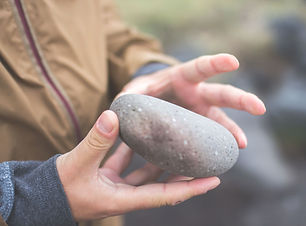


'TRUTH IS THE DAUGHTER OF TIME'
geochronology & geochemistry research group
@SUERC, University of Glasgow
Available for Collaborative Research

ABOUT THe G2RG
The Geochronology & Geochemistry Research Group (G2RG) is based at SUERC, University of Glasgow and uses high precision mass spectrometry (noble gas, plasma and thermal ionisation), isotope geochemistry and radioisotope geochronology to address questions in Earth, Planetary and Environmental Science.
Geochronology establishes the temporal framework for the study of geologic processes, providing the tools and data that are critical to evaluate the rates, quantity, and significance of different rocks and geological events. Today, the big challenge facing geochronologists is the intercalibration of the various timescales produced by the utilisation of different geochronometric tools. Building on the success of the EarthTime initiative that aimed to bring overall dating accuracy to better than 0.1 percent, the G2RG utilises two main dating techniques to interrogate the distribution of time in the geologic record. One technique measures the clocklike decay of uranium to lead inside zircon crystals. Another measures the amount of argon gas produced in minerals like feldspar by the decay of potassium. The G2RG ethos is to, where possible, use both dating techniques to constrain rates of sedimentary, biotic, climatic and magmatic processes as well as rates of rock recycling and metamorphism over a wide range of timescales throughout solar system history.
Radiogenic isotope geochemistry uses naturally radioactive elements to both trace and date Earth (and solar system) processes. Different reservoirs within the Earth develop characteristic ratios of parent to daughter isotopes that through time result in distinctive isotopic compositions, which can be used to trace geological processes. On a variety of timescales, rocks and minerals can be dated by measuring the abundances of radioactive elements and their radiogenic daughter products (e.g., Rb-Sr). Radiogenic isotope geochemistry helps scientists address major issues in Earth and environmental science, such as climate change, exploration for mineral resources and formation of the Earth-Moon system.
Combining these approaches provides geoscientists with a powerful toolkit to examine the rock record. Group oversight and steering is provided by Darren Mark.

Services & Opportunities
Collaboration
Collaboration can take many forms and will stem from a mutually beneficial working relationship between individuals, groups or organisations. At the earliest stages we suggest that you consider the objectives of any proposed collaboration and how these will bring benefits to all involved. It is important to set objectives out clearly so that they can inform any discussions with G2RG. We actively collaborate with over 30 academic institutions and businesses across the planet and provide leading and supporting roles in research grants, project studentships, knowledge exchange and outreach activities. If you want to collaborate with the G2RG contact us below.
Commercial
measurements
Our commercial rates vary according to the nature of the samples, preparation procedures, size of the project and combination of analyses requested. For a full range of analytical services that we offer on a commercial basis follow the more info. link below. Typically, we would offer 'rock-to-result' service — you send us a rock, we send you a result. We also offer options for consultancy, pre-screening of samples for suitability and full data interpretation. To discuss commercial project costs please complete the contact form below. Packages can be tailored to client needs and budgets. Value for money and customer satisfaction is a key component of our service delivery.
Opportunities
to study or work with us
MSc and PhD studentships: The G2RG is a component of the IAPETUS 2 and E4 NERC Doctoral Training Partnerships. We welcome direct enquiries from students with 2.1 (or equivalent) degree qualifications in geoscience and physics to come and study with us.
Post-doctoral opportunities: We welcome enquiries from anyone considering applying for Research Fellowships (e.g., NERC, ERC, MSCA, STFC, UKSA or The Royal Society) in the realms of Ar/Ar dating, U-Pb geochronology, noble gas research or high-precision TIMS.
Visiting scientists: to come and work with the G2RG contact us below.
NEIF: The G2RG hosts the K-Ar and Ar/Ar dating component of the NERC National Environmental Isotope Facility (NEIF). For NERC eligible PIs, further information to access the NEIF can be found through the link to the left. Dan Barfod manages the day-to-day operation of the K-Ar and Ar/Ar component of NEIF.
Darren Mark oversees the NEIF portfolio at SUERC, which includes six different laboratories.



